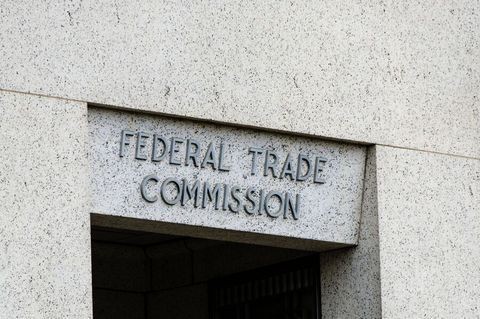OSHA Revises Its Sarbanes-Oxley Whistleblower Rules Impacting Public Companies and Their Affiliates and Subsidiaries
Client Alert | 2 min read | 11.09.11
An interim rule issued on November 3, 2011 by the U.S. Department of Labor’s Occupational Safety and Health Administration (“OSHA”) modified the agency’s existing Sarbanes-Oxley (“SOX”) whistleblower regulations. Prompted by the Dodd-Frank Wall Street Reform and Consumer Protection Act’s amendments to SOX, the modifications are intended to make SOX’s whistleblower regulations more consistent with those applied in other OSHA-administered whistleblower programs. The changes affect companies with securities registered under Section 12 of the Securities and Exchange Act, those required to file reports under Section 15(d) of the same statute, and the affiliates and subsidiaries of those companies. In essence, the interim rule impacts companies that are required to submit filings with the Securities and Exchange Commission as well as their affiliates and subsidiaries.
Perhaps the most significant change for employers is that, under the interim rule, OSHA may order a company to provide a SOX whistleblower complainant with the same pay and benefits that he or she received prior to termination of employment, or what is referred to as “economic reinstatement.” This “economic reinstatement” differs from “preliminary reinstatement” in that the whistleblower is not obligated to return to work before the complaint is resolved, as he or she could have been under prior SOX regulations. Furthermore, employers do not have the option to choose economic reinstatement rather than actual reinstatement. Instead, the interim rule allows OSHA to make the decision as to whether to allow for economic reinstatement, as opposed to actual reinstatement, on a case-by-case basis. The stated purpose for this rule change is to accommodate situations where the evidence indicates that reinstatement prior to the conclusion of administrative adjudication is inadvisable for some reason, such as where the company shows the complainant to be a security risk.
The interim rule also reiterates that even if an employer prevails in a SOX whistleblower action, there is no “statutory basis for allowing an employer to recover the costs of economically reinstating an employee.” The application of economic reinstatement in SOX cases reflects OSHA’s current application of this doctrine to whistleblower issues involving the Federal Mine Safety and Health Act. Thus, employers may find themselves paying alleged whistleblowers their salary and benefits after termination of employment, even if their SOX complaints lack any merit.
Other changes made by the interim rule include some non-substantive terminology modifications, as well as the recognition of complainants’ ability to make oral or representative complaints, in addition to the written complaints required under the previous rule. This change is intended to be consistent with the Supreme Court’s recent decision in Kasten v. Saint-Gobain Perf. Plastics Corp., 131 S. Ct. 1325 (2011). The terminology changes set forth in the interim rule track the wording already utilized by OSHA in handling whistleblower complaints in other contexts.
The interim rule became effective immediately. A final rule will take effect following a 60-day period of public comment and time for OSHA to receive and review the comments.
Contacts
Insights
Client Alert | 3 min read | 05.06.24
FTC Imposes $3.17 Million Civil Penalty for Violation of Prior Made in USA Order
Last week, based on a referral from the Federal Trade Commission (“FTC”), the Department of Justice (“DOJ”) filed a complaint against Williams-Sonoma alleging that the company violated a previous Federal Trade Commission decision and order dated July 13, 2020 (the “2020 Order”) pursuant to which Williams-Sonoma was prohibited from making unsubstantiated U.S. origin claims. The complaint alleged that, following entry of the 2020 Order, Williams-Sonoma made “numerous false and unsubstantiated representations that their home goods or other products are ‘Made in USA’ or otherwise of U.S. origin, when, in fact, they are wholly imported or contain significant imported components.”
Client Alert | 14 min read | 05.03.24
Client Alert | 3 min read | 05.03.24
EEOC’s New “Enforcement Guidance on Harassment in the Workplace” Hits Hot-Button Issues
Client Alert | 11 min read | 05.03.24
FDA Moves Forward on Laboratory Developed Tests while Stakeholders and Congress Weigh Next Steps





